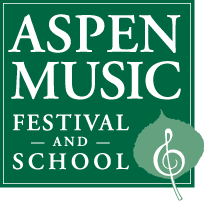« Where did I put that periwig? | Main | Hang on, Norman »
July 18, 2005
Call Off the Attack Dogs!
Is it telling that my suggestion that critics take one another on more often was construed by several here as advocating that critics attack one another? Why attack? I was only trying to suggest that engaging in debates might be more interesting than the detached writing that so often prevails today. It needn't be nasty. How do you keep from getting stale if you don't have opportunities to have your opinions challenged?
A few here have suggested that classical music critics have narrowed their focus too much. If that's so, then wouldn't debating ideas in print broaden the field? Last week Tim Page wrote a marvelous obit of pianist Alexei Sultanov in the Washington Post that described what a polarizing player he was and giving quite a bit of context that helped explain why he inspired extreme reactions. It was the kind of context that helps you understand something about the tastes and fashion of the piano world. And it linked Sultanov to a larger narrative.
There are so many performers and composers, critics are constantly having to make choices about what's important to cover. Problem is, critics often forget to explain why this artist was important to pay attention to while this other one was not. Why did Tim spend the time on Sultanov while most critics did not? His piece helps you understand why.
But why is it often so difficult to discern a critic's world view of music? Isn't developing an aesthetic all about making coherent defendable choices? And shouldn't the reasons for those choices be on public display? I guess I'm just suggesting that in this era of global access to information (and opinion), that the lone voice doesn't cut it any more.
And Robert - you're quite right about my local papers - they each also have a pop music critic, neither of whom acknowledges the other. But surely let's not look to pop music criticism for a cure. There are some big exceptions to be sure, but the state of pop music criticism is at least as broken as classical is.
Posted by mclennan at July 18, 2005 11:48 PM
COMMENTS
Douglas, I will agree with you that Tim Page's obituary, for the Washington Post, of prize-winning pianist Alexei Sultanov was a superb piece of writing and a service to the classical music profession and industry. No one can doubt that Mr Page is an absolutely superb music writer, and that he easily deserved his Pulitzer Prize for music writing -- both journalistic and biographical. Furthermore, Mr Page's coverage, for the Washington Post, of the Baltimore Symphony Orchestra's current new music director search has been exemplary, from his article on yesterday's front page of the paper, to today's "Style" front page story on "Where is the Ms. in Maestro? Major Orchestras Still Shy Away from Female Conductors" ("Women may be CEOs, University presidents and cabinet secretaries, but few run major orchestras...").
But I believe that a distinction needs to be made between music journalism and writing, and music criticism. I thought that it was largely to the profession of music criticism that Mr Lebrecht addressed his essay in 2004, which you linked to as a basis for your discussion.
In my opinion, Mr Page has repeatedly, and inaccurately, down-played conductor Mstislav Rostropovich's contribution, over 18 years, to the National Symphony Orchestra, and the National Capital's cultural life and importance, based upon, I believe, very few occasions on which Mr Page actually heard the NSO under Rostropovich. In my view, Mr Page has repeatedly pointed to Mr Rostropovich's alleged "short-comings" in his conducting of Mozart, Mahler, and maybe Schubert, while failing to confirm for his readers the widely-held belief of many musicians and music patrons that Rostropovich put Washington, D.C. on the international musical and cultural map for 18 years by his performances of twentieth century music and his never-to-be-repeated performances of the cello repertoire from Haydn to the more than three or four dozen major international composers who wrote concertos for him (including, of course, Prokofiev, Shostakovich, and Britten).
Who was it that performed the American premiere of Krystof Penderecki's Polish Requiem, before the fall of the Berlin Wall? Who was it that commissioned Stephen Albert to write his "Riverrun Symphony", which won the American Pulitzer Prize? Who was it that commissioned Russian composer Vyacheslav Artyomov, at the time of the break-up of the Soviet Union, to composer two symphonies in his symphonic tetralogy "Symphony of the Way" for the NSO? Who was it that invited Walton, Tippett, Ginastera, Lutoslawski, Penderecki, Schnittke, Gubaidulina, and many other composers and performers to Washington and to the concert hall of the Kennedy Center? It is to such matters that I feel music criticism can properly be addressed in the 21st century, rather than simply to whether local performances of Mahler symphonies are up to the levels of those commercially released on DG, EMI, or London/Decca.
Posted by: Garth Trinkl at July 19, 2005 07:40 AM
Post a comment
Tell A Friend

 AJ blog partner
AJ blog partner